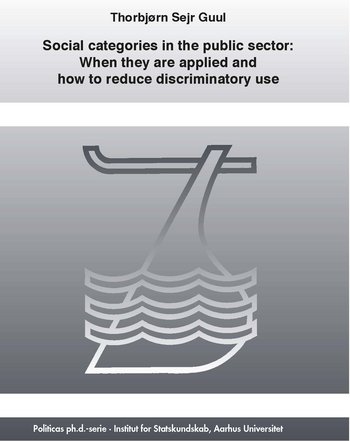Thorbjørn Sejr Guul
Social categories in the public sector: When they are applied and how to reduce discriminatory use

A substantial number of studies find that social categories, broadly defined as categories of people, which acquire their meaning by contrast with other categories, such as gender, ethnicity and social class, affect the treatment citizens receive in the public sector. This has detrimental effects for the individual, and it conflicts with the promise of universalistic treatment embedded in modern bureaucracy. However, few studies examine how to reduce discriminatory treatment by politically controllable means. This dissertation examines when social categories are applied and, importantly, how to reduce discriminatory use in the public sector. To answer this question, the dissertation proposes a theoretical model, which suggests that salient social distance affects discriminatory use of social categories. Lack of cognitive resources amplifies such use because it limits attention to the influence of social categories in stereotypical and consequently discriminatory ways. Correspondingly, reducing social distance by making the bureaucracy more representative of the citizens they serve, releasing cognitive resources by reducing workload or focusing on discriminatory use by providing systematic information that increases awareness of discriminatory influence of social categories can reduce discriminatory use. The model finds support through combined quasi-, field- and survey-experimental evidence. The dissertation takes some of the first steps towards a comprehensive theory of discriminatory use of social categories in the public sector and how to reduce such use by politically controllable means. The quest for future research is to find more and sustainable political means to reduce discriminatory use of social categories.
![]() Ophavsretten tilhører Politica. Materialet må ikke bruges eller distribueres i kommercielt øjemed.
Ophavsretten tilhører Politica. Materialet må ikke bruges eller distribueres i kommercielt øjemed.